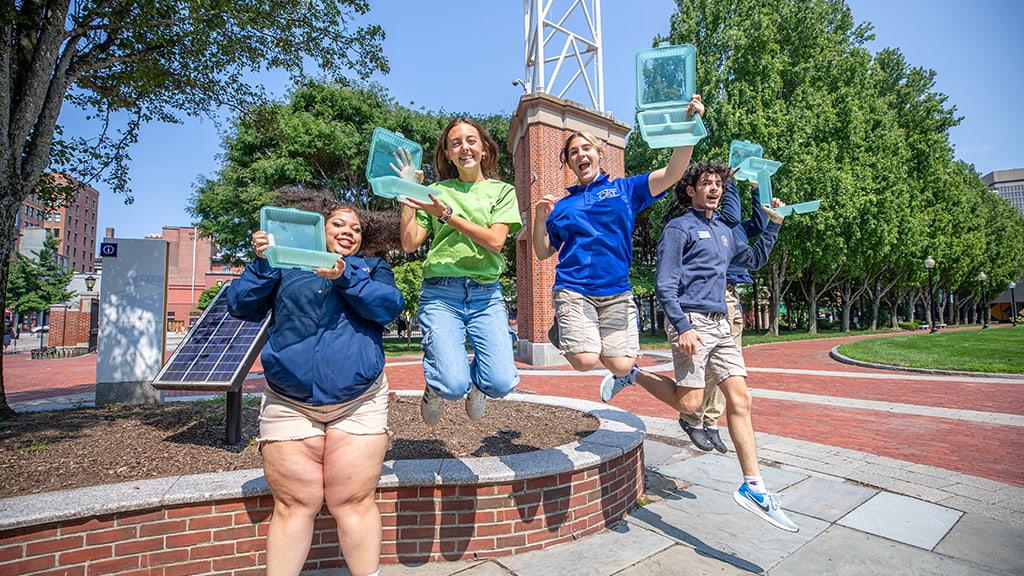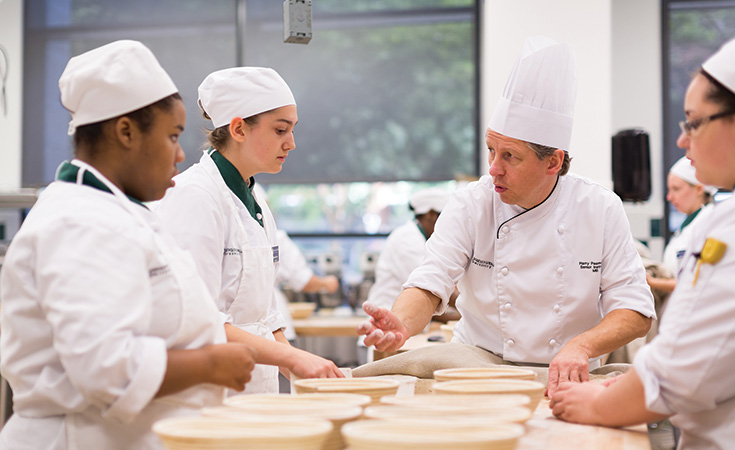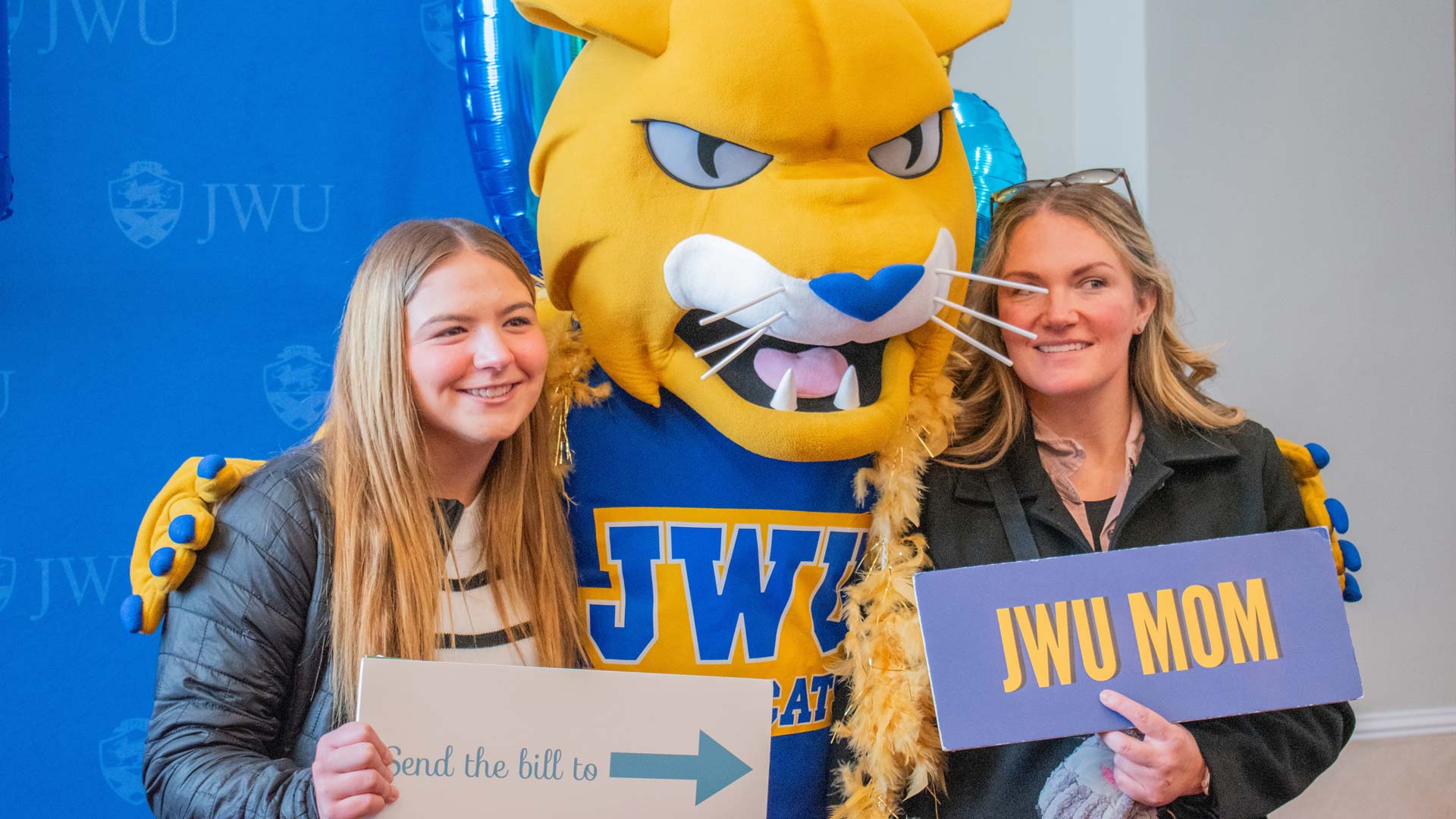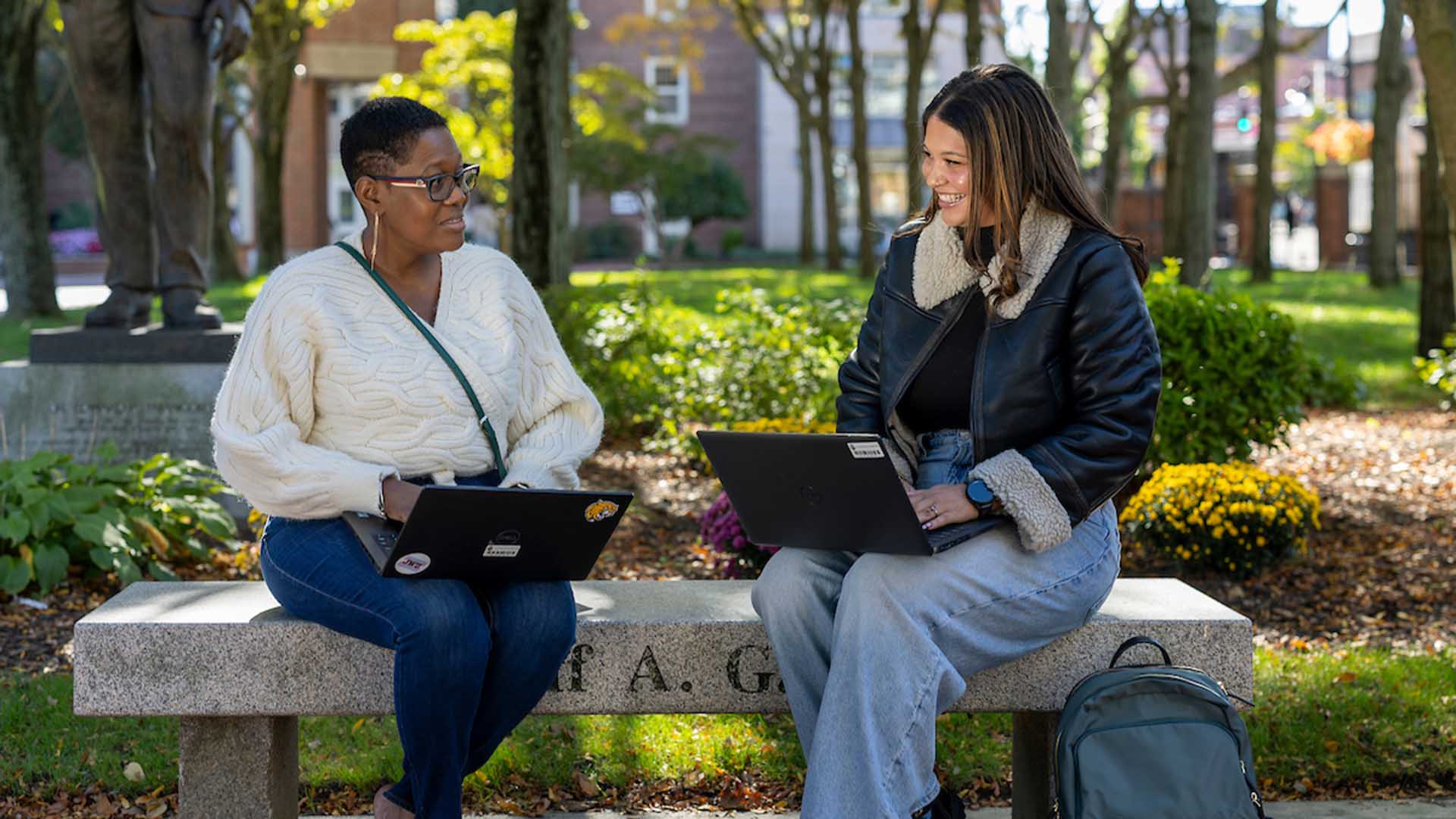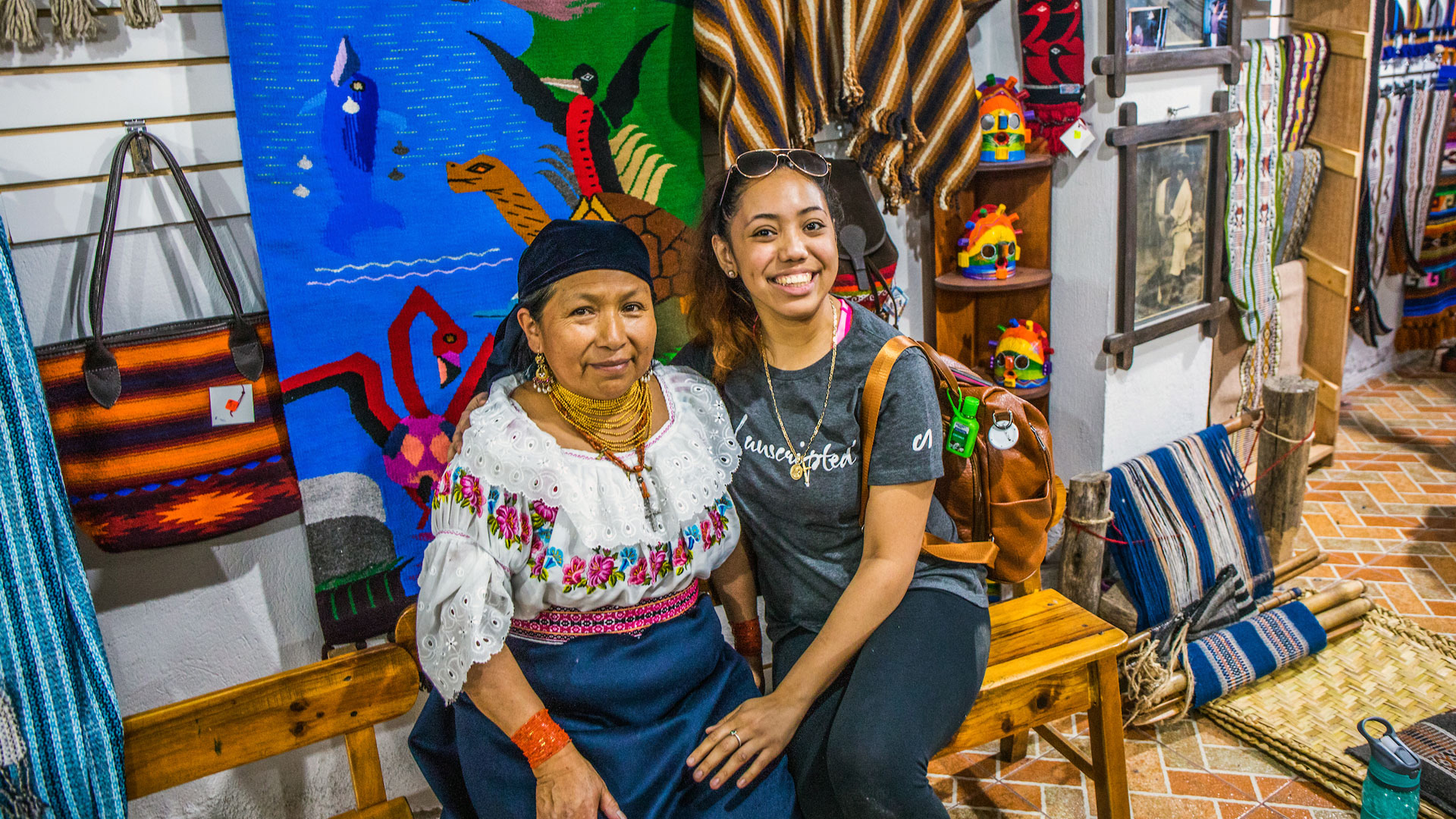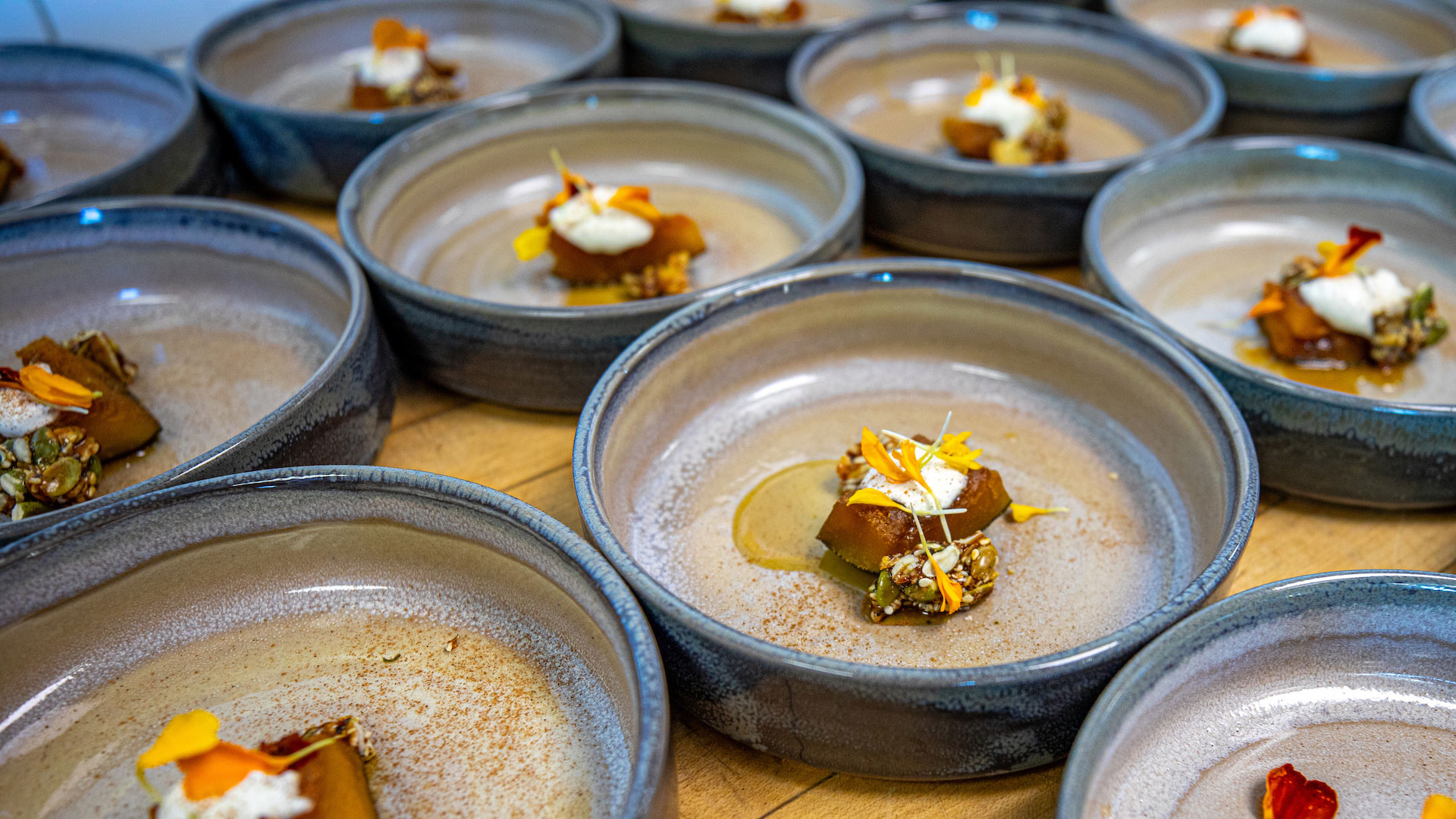5 Ways JWU Has Championed Sustainability This Year
Environmental sustainability has never been more important. With rising global temperatures, sea levels and emissions, reducing our carbon footprint is crucial for our future. Johnson & Wales University's campuses in Providence and Charlotte have had an exceptional year in terms of sustainability. Here are some ways JWU continues to promote green initiatives.
1. Ditching Single-Use Food Containers
Between class, work and extracurriculars, sometimes students need to take their food on the go. Unfortunately, this can lead to a lot of waste, as the empty containers end up in landfills. With this problem in mind, last fall, JWU introduced reusable takeout containers in dining halls. Students can purchase the containers at their dining halls and don’t even have to wash them. They can simply bring their dirty containers back to be sanitized at the dining hall, and will be given a new, clean container. If a student has a container but decides they want to eat in one of the dining halls instead of taking their food to go, they can still turn in their container and will be given a wooden chip in Charlotte or a carabiner in Providence. The next time they decide they want to take their food to go, they turn in the wooden chip or carabiner at the register and receive a new to-go box. >
Not only are the reusable containers more durable than the disposable ones formerly used, but they have truly made a difference in decreasing waste. After switching from disposable clamshell containers to the new reusable ones, 5.55 tons were removed from JWU Providence’s non-food waste stream. JWU Charlotte has also seen a huge drop in non-food waste after eliminating most single-use plastics, such as straws and grocery bags, and making an effort to push reusable silverware over disposable.
It also became clear that the single-use plastic K-cups for making coffee and disposable paper cups to hold beverages were contributing to a significant amount of waste in dining halls. Instead, JWU switched to a bean-to-cup program and reusable in-house mugs, which give people a freshly-ground cup of coffee and, of course, minimizes waste. In fact, at JWU Providence, this has led to the reduction of 328 cases of K-cups — 152.5 pounds of waste — and 43,000 paper cups — 940.5 pounds of waste, which is about the size of a grand piano— that will not end up in a landfill each year.
2. Increasing Composting, Decreasing Food Waste
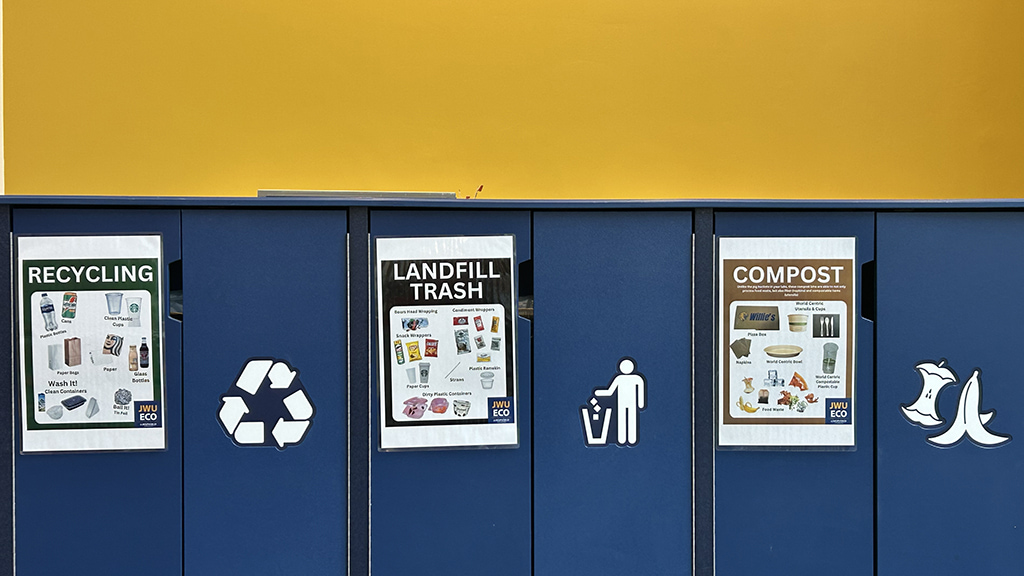
Beyond plastic waste, JWU had a big year in terms of decreasing food waste in dining halls. At JWU Charlotte, the total amount of food waste produced by Dining Services went from 7.7 tons in the 2023–2024 academic year to 3.6 tons in 2024–2025. Additionally, the amount of food waste from leftovers on students’ plates went from 5.9 tons in the 2023–2024 academic year to 2.8 tons in 2024–2025. A big reason for this was the introduction of online ordering, according to Paul Reinfeld ’02, director of dining at JWU Charlotte. Giving students food that was pre-portioned led to less food waste, as students were not adding more to their plate than they could eat — which is often the case in the all-you-care-to-eat setup.
Reinfeld also says that due to improvements in food production management, leftover food went from 1,451 pounds in the 2023–2024 school year to 552 pounds in 2024-2025. The food waste that was not able to be donated to Feeding Charlotte, a local nonprofit food rescue organization, was composted. In the 2023–2024 academic year, 92% — or 3.3. tons — of all food waste at JWU Charlotte was composted.
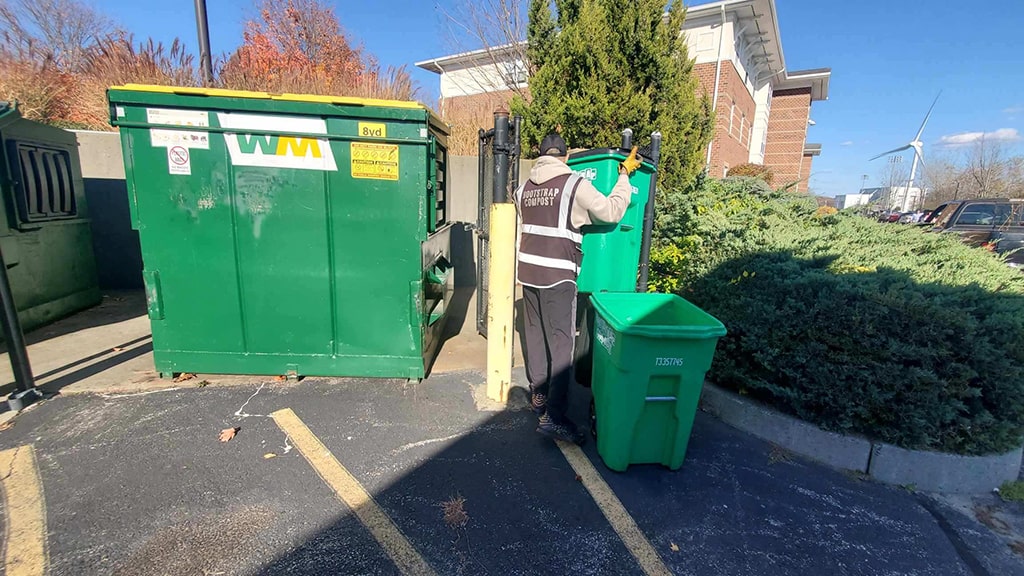
JWU Providence also had a stellar past year in terms of composting, which led to its dining halls reducing food waste by 227,040 pounds. Since 2014, JWU Providence has partnered with Izzo Brothers Pig Farm in Johnston, Rhode Island. In this partnership, the local fig farmer collects waste from JWU’s dining halls about five times per week. This past year, Izzo Brothers Pig Farm completed 516 pickups from three of JWU’s dining halls, getting 440 pounds during each pickup, totaling 227,040 pounds of compost.
JWU Providence also added Max R containers in the Bowen Center, the Harborside Academic Center, and the Friedman Center. These tri-barrel containers clearly separate landfill, compost and recycling, making it easy for students, staff and faculty to properly dispose of waste. After installing the Max R containers, JWU partnered with Bootstrap Compost, a service that picks up waste from JWU twice a week and composts it. They were chosen because they compost fibers, which means napkins, utensils, containers, cups, and pizza boxes are saved from landfills. JWU’s work with Bootstrap takes things a step further by offering students the opportunity to compost themselves. Those who live in the Harborside Village, which is an apartment-style residence hall, can sign up to receive a tabletop composting bucket to have in their kitchens. Bootstrap then gives JWU “Black Gold” compost, which is used in its gardens throughout campus. "Since launching this partnership with them on November 15th of 2024, 5,139 pounds of compost waste has been diverted with Bootstrap alone” shares Michelle Galvin, JWU’s sustainability coordinator.
3. Bringing Sustainability into the Classroom in Charlotte
JWU’s efforts to bring sustainable practices to campus extend into the classroom as well. JWU’s College of Food Innovation & Technology (CFIT) has long been a model of culinary sustainability and has championed many initiatives surrounding environmentalism. Last year in Charlotte, Culinary Arts and Baking & Pastry Arts professors provided their students with some particularly fascinating lessons in kitchen sustainability.
At the 2025 Asheville Bread Festival in Asheville, North Carolina, students partnered with JWU faculty to present a bilingual workshop focused on sustainability, nutritional value and enhanced flavor. They used many locally sourced whole grains to make traditional Hispanic breads and pastries, which benefited local farmers and millers. The students later presented their work at the JWU Charlotte Student Research, Design, and Innovation Symposium. Chef Harry Peemoeller, senior instructor in JWU Charlotte’s Baking & Pastry Arts program, says, “Through this interactive experience, students emphasized sustainable food systems and the preservation of diverse culinary traditions.”
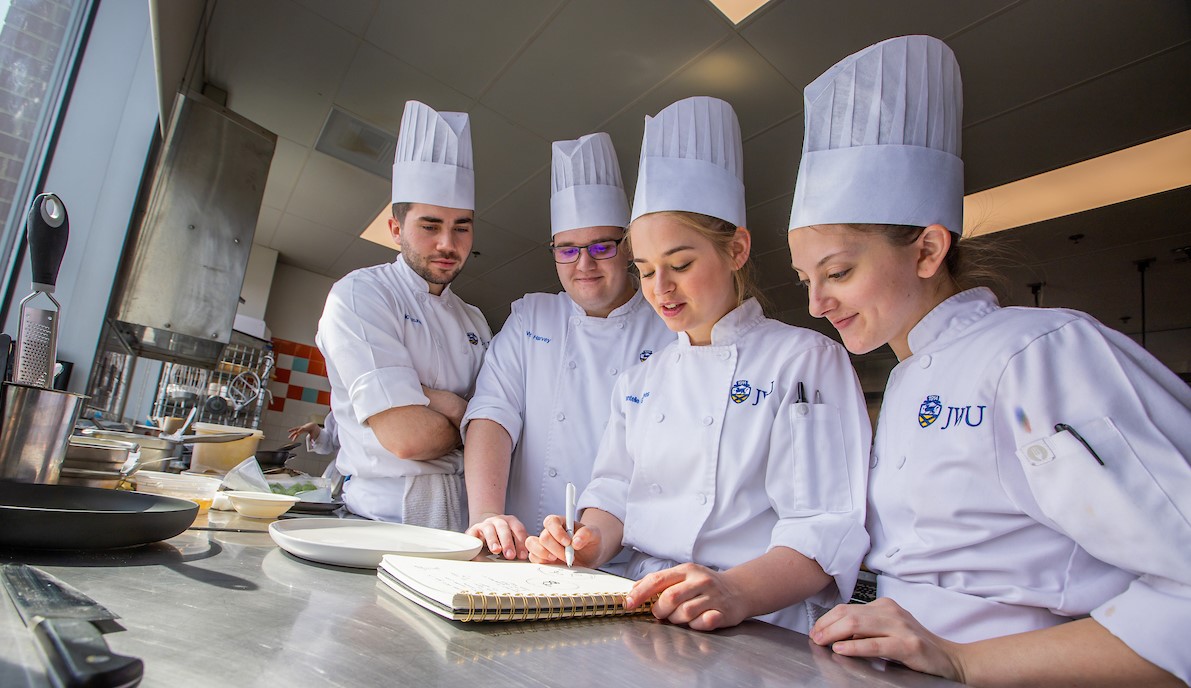
Beyond the workshop at the Asheville Bread Festival, the Charlotte Campus incorporates sustainably sourced grains into its regular program; most notably, polycropping is utilized. “Inspired by traditional Indigenous practices like the Native American ‘Three Sisters' system — which pairs corn, squash and legumes to maximize resources like nutrients, water and sunlight — this approach fosters a more resilient and efficient farming ecosystem,” explains Chef Peemöller.
Working with Professor Robert Lothrop '98, Ph.D., Applied Food Science students in Charlotte also did a tremendous amount of work to promote sustainability and minimize food waste. For the third year in a row, JWU Charlotte partnered with AMCE Smoked Fish, a family-owned fish purveyor based in Brooklyn, New York, with a large manufacturing facility in Wilmington, North Carolina. ACME is the leading smoked salmon producer in the U.S., and students were tasked with creating an appetizer product using either smoked salmon trim or smoked tuna trim. The appetizer had a list of requirements, including containing at least 15% fish, having at least a 30-day shelf-life (or a 21-day shelf-life for tuna) and being a Kosher, clean-label product. Students certainly rose to the challenge: some of the dishes produced included Smoked Salmon Croquettes and Smoked Tuna Soup Dumplings.
4. Pop-Up Thrift Shop in Providence
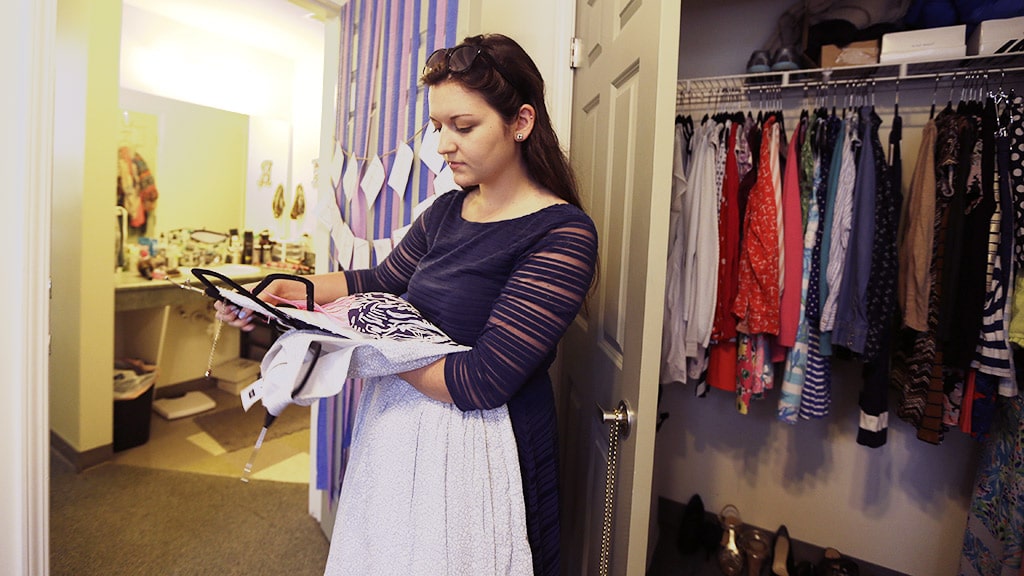
Outside of the classroom, many of JWU’s students are just as eager as staff and faculty to mitigate climate change. Thrifting has become an easy and simple way for students to be more sustainable while still enjoying the fun that comes with shopping for new clothes. This was the motivation behind the collaboration between Pop-Up PVD and JWU’s Student Activists Supporting Sustainability (SASS) in Providence last spring.
Pop-UP PVD was started by a group of recent college graduates living and working in Providence. They initially sold their thrifting finds individually online, but came together in 2021 to establish Pop-Up PVD, a moving thrift shop that sets up ‘shop’ for the day at various community spaces around the city. The event at JWU was a part of Pop-Up PVD’s "College Tour," wherein they visited multiple schools in the Providence area. “The main goal of the event was to fundraise for the SASS by selling secondhand clothes,” says Jack Rielly, treasurer of SASS. Moreover, Rielly says the pop-up helped to redirect unwanted clothes from entering different waste streams.
The event took place on a sunny April afternoon in Gaebe Commons and, despite cold temperatures, had a fantastic turnout. Reilly says this central location was chosen in part to bring more awareness of SASS to the Downcity Campus, as most of the meetings and work done with SASS take place at Harborside. The brick walkways of Gaebe were filled with racks of second-hand clothing for students to peruse easily. The event was a great success, with students flocking to comb through the many gems brought by Pop-Up PVD. Given the positive response to the event, the hope is to have another pop-up thrifting event next year.
5. Winning the NACUFUS Bronze Award
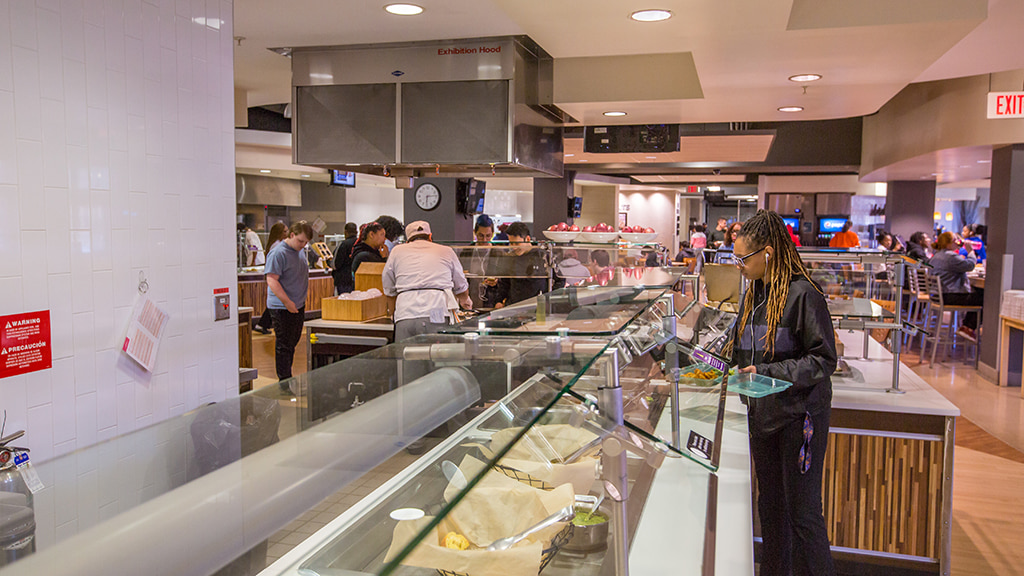
Every year, the National Association of College & University Food Services Waste Reduction Awards (NACUFS) gives out four awards to colleges and universities that have excelled in one or more areas of culinary sustainability and/or community building in relation to sustainability. This year, JWU was thrilled to receive a bronze award in Waste Reduction. “Programs who win this award will place an emphasis on reducing single-use disposables, recycling and composting, diverting waste, collecting data on waste production, and educating consumers on the importance of reducing all waste, including food and other dining related items,” according to the NACUFS award report. There is also a big emphasis on outreach and education in this award, as the organization measures the impact of each contender’s waste reduction in terms of its influence on the greater community.
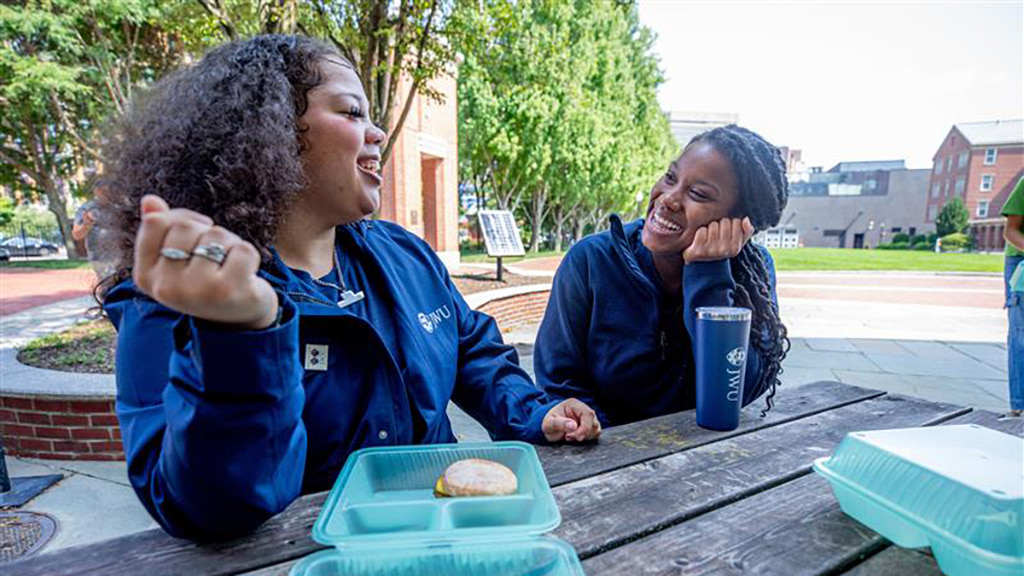
Beyond the work of establishing and maintaining sustainable practices at JWU, obtaining this award was the result of major collaboration. Members of JWU’s Environmental Conservation Office (ECO) and Auxiliary Services teamed up to write a comprehensive report outlining all that JWU has done and continues to do in terms of reducing waste and promoting sustainability.
“Our efforts in switching to a takeout container as well as a bean-to-cup program, introducing Max R containers that allowed for composting food waste and fibers with Bootstrap, composting on top of that with a local pig farmer since 2014, and donating excess food to Wildcat Food Rescue & a local nonprofit were just some of the ways in which we were able to prevent, recycle or donate waste. We were very happy to be recognized by NACUFS in our efforts with these initiatives" says Galvin.
